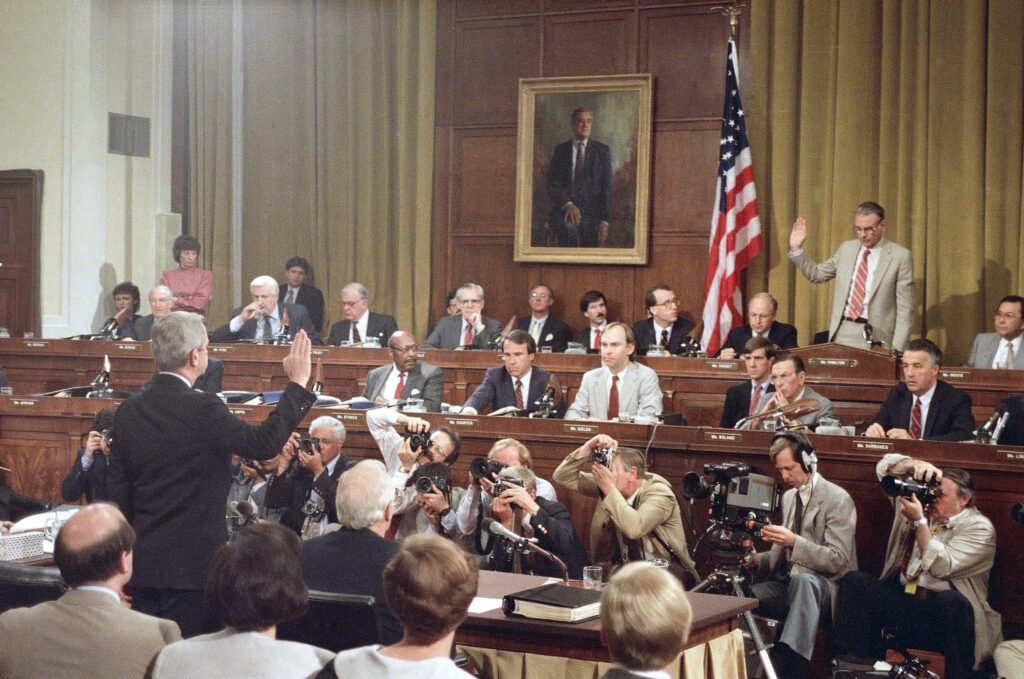Introduction:
January 4, 1982, marked a critical yet covert turning point in the Cold War narrative, particularly in the volatile political landscape of Latin America. On this day, President Ronald Reagan signed the National Security Decision Directive 17 (NSDD-17), a top-secret order that dramatically altered the course of U.S.-Nicaraguan relations and fueled one of the most contentious foreign policy debates in American history. This directive’s implications and the events leading up to it paint a vivid picture of Cold War tensions and the United States’ strategic maneuvers.
Backdrop of NSDD-17: The Rise of the Sandinistas:
The origin of NSDD-17 can be traced back to the late 1970s, during a time of significant political upheaval in Nicaragua. The Sandinista National Liberation Front (FSLN), a group of leftist revolutionaries, had successfully overthrown the long-standing Somoza dictatorship in 1979. This victory for the Sandinistas was not just a local event but a part of a larger narrative of leftist movements gaining momentum in Latin America, often with Soviet support. The Sandinistas’ ascent to power was perceived as a direct challenge to U.S. influence in the region, especially amidst the broader context of the Cold War.
The Directive’s Strategic Aim:
NSDD-17 emerged from a climate of growing concern within the Reagan administration regarding Soviet expansionism. This directive authorized the CIA to form and support a group of Nicaraguan rebels, known as the Contras, to conduct covert operations against the Sandinista regime. The aim was clear – to destabilize a government perceived as a Soviet ally and curb the spread of communism in the Western Hemisphere.
Controversy and International Response:
The implementation of NSDD-17 stirred significant controversy both domestically and internationally. Critics accused the Reagan administration of engaging in an illegal war and supporting a group (the Contras) that was allegedly involved in human rights abuses, including targeting of civilians, kidnappings, and other violent tactics. This led to a heated debate within the United States about the ethics of foreign intervention and the limits of executive power.
The Iran-Contra Affair and its Repercussions:
The situation escalated into a full-blown scandal with the exposure of the Iran-Contra Affair. The discovery that the Reagan administration had secretly sold arms to Iran, despite an embargo, and used the profits to fund the Contras, bypassing a Congressional ban, caused an uproar. This affair brought to light the complexities and often murky nature of covert operations, leading to Congressional hearings and a national reevaluation of foreign policy practices.
Impact on Nicaragua and Long-term Effects:
In Nicaragua, the Contras’ activities contributed to a prolonged and bloody conflict, exacerbating political divisions and human suffering. The U.S.’s involvement in Nicaragua, via NSDD-17 and subsequent actions, left a lasting impact on the country’s political and social fabric. It also influenced how the United States was perceived in Latin America and contributed to the debate over U.S. interventionism in foreign nations.

Legacy and Reflection:
The signing of NSDD-17 under President Reagan provides a crucial lens through which to view the geopolitical dynamics of the Cold War era. It underscores the intricate and often hidden aspects of international politics, where national interests frequently clash with ethical considerations. As history reflects on these events, it serves as a poignant reminder of the complexities and consequences of global power plays.
Conclusion:
The legacy of January 4, 1982, and NSDD-17, extends beyond U.S.-Nicaragua relations, offering insights into the broader implications of Cold War strategies. This event serves as a significant case study in the ethics of foreign policy, the challenges of international diplomacy, and the lasting impact of geopolitical decisions. As we revisit this critical juncture in history, it continues to offer valuable lessons on the delicate balance between national security interests and moral responsibility in the global arena.







What do you think?
Show comments / Leave a comment